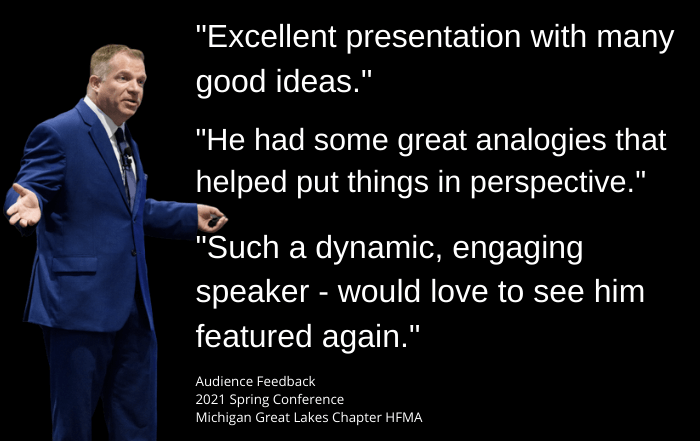 It’s important for business professionals to stop making assumptions at work. Otherwise, you may open the door to mistakes, costly misunderstandings, or imaginary personal conflicts.
It’s important for business professionals to stop making assumptions at work. Otherwise, you may open the door to mistakes, costly misunderstandings, or imaginary personal conflicts.
It’s easy to assume that our colleagues or clients share the same priorities, have the same skills, or communicate the same way we do. However, these assumptions can lead to problems.
Once upon a time, I was getting ready to be the opening keynote at a conference of more than 500 people. I always arrive early, so I’m usually the first in the venue.
Eventually, I see the first attendee come into the room. She looks around and then sits at the table that’s in the very back of the venue. It’s the furthest you could possibly sit from the stage.
As a speaker, while you understand not everyone wants to sit in the front row, seeing someone come early to sit in the back, may not fill you with confidence or boost your ego.
But what if my initial feeling was wrong? It’s a case where I was making assumptions at work. You may be doing a similar thing. Here’s why:
Priorities
One common assumption is that everyone shares the same priorities. This can lead to confusion and frustration when our colleagues don’t respond in the way we expect.
In my example, the woman who sat in the back, pulled out a laptop and plugged it into a wall outlet. For her, the most important thing was being able to power her computer.
Her job may require her to have a presence in the office, through her computer. Plus, maybe she takes notes on her laptop and knows her battery won’t last the whole day.
The woman’s actions likely had nothing to do with my presentation.
Skills
Another common assumption is that someone knows something or has certain skills. This can lead to frustration and confusion, especially when tasks are not completed as expected.
To avoid this, we should ask questions and make sure everyone has the necessary information and skills to get the job done.
For instance, you wouldn’t ask a plumber to do the work of a dentist. A few minutes of checking can save a lot of time and prevent frustration.
Communication
Assuming that someone has our same communication style can also lead to misunderstandings. Some people prefer face-to-face communication, while others like emails or messages.
To prevent confusion, we should understand our colleagues’ communication preferences and adapt accordingly. It can be as simple as asking, “What’s the best way for me to communicate with you?”
For instance, some leaders may want employees to notify them immediately about anything. Others may tell their teams to send one or two summary messages a day.
And don’t forget the impact of tone or missing tone. A phone call or video conference can give you more of an idea of how someone feels, then an email or text message.
Clients
Finally, making assumptions can also be harmful to our relationships with clients. Assuming that a client is on the same page with us can lead to disappointment and frustration.
Imagine a businesses has worked with a customer for years and started to take the relationship for granted. An annual renewal is just expected to happen, which is a classic case of making assumptions at work.
Because the customer may feel neglected, believe there are now cheaper options in the marketplace, or think the provider hasn’t keep up with similar offerings. None of these issues are revealed, if assumptions cloud your mind.
To avoid this, you should communicate clearly and ask questions to ensure that you understand the client’s needs and expectations. These will likely change over time.






